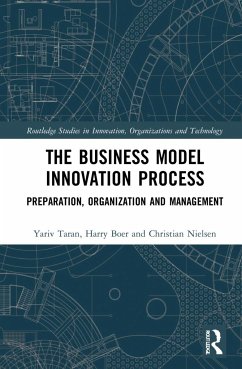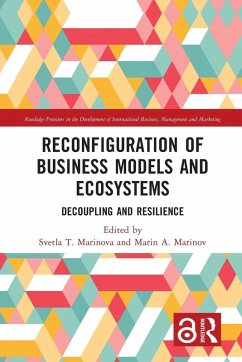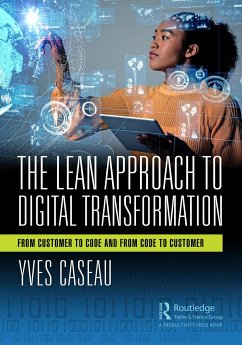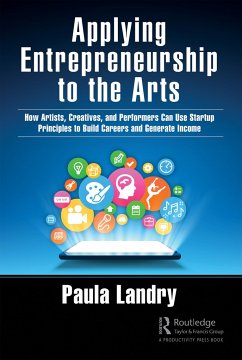
Lean Startup in Large Organizations
Overcoming Resistance to Innovation
Versandkostenfrei!
Versandfertig in 6-10 Tagen
31,99 €
inkl. MwSt.
Weitere Ausgaben:

PAYBACK Punkte
16 °P sammeln!
Large corporations must become far more agile in implementing new products and new business models. The pace of technology change, the blurring of industry boundaries, and the agility and resources of startups in almost every industry segment demand it.Many companies have begun to adopt the principles of Lean Startup in order to increase the pace and agility of their innovation initiatives, but most have had limited success in doing so. Although the principles seem intuitive and straightforward, there are challenges to using them inside an existing company, especially in a manufacturing enviro...
Large corporations must become far more agile in implementing new products and new business models. The pace of technology change, the blurring of industry boundaries, and the agility and resources of startups in almost every industry segment demand it.
Many companies have begun to adopt the principles of Lean Startup in order to increase the pace and agility of their innovation initiatives, but most have had limited success in doing so. Although the principles seem intuitive and straightforward, there are challenges to using them inside an existing company, especially in a manufacturing environment. The biggest requirements, beyond those espoused for startups, are:
Developing a business model for the new venture that not only works in the marketplace but also works within the constraints of the corporation
Managing the conflicts that inevitably arise with the current operating business; every business that has operated over decades has well-established ways of doing things that may not fit the required pace and flexibility required of a new venture
Conducting business experiments with physical goods as well as with software offerings
Managing the risk of investing in a new domain for executives that are used to investing where the risks are more clearly understood
This book describes a systematic approach for implementing Lean Startup in large organizations. It builds on the principles of Lean Startup and adds additional practices required to manage the realities of the corporate context. The book describes how it is done, with examples from practice in companies that have successfully used the methods. It complements Lean Startup methods with elements of corporate innovation practices developed by leading academics and practitioners. It brings these practices together for the first time in a practical and integrated way.
Many companies have begun to adopt the principles of Lean Startup in order to increase the pace and agility of their innovation initiatives, but most have had limited success in doing so. Although the principles seem intuitive and straightforward, there are challenges to using them inside an existing company, especially in a manufacturing environment. The biggest requirements, beyond those espoused for startups, are:
Developing a business model for the new venture that not only works in the marketplace but also works within the constraints of the corporation
Managing the conflicts that inevitably arise with the current operating business; every business that has operated over decades has well-established ways of doing things that may not fit the required pace and flexibility required of a new venture
Conducting business experiments with physical goods as well as with software offerings
Managing the risk of investing in a new domain for executives that are used to investing where the risks are more clearly understood
This book describes a systematic approach for implementing Lean Startup in large organizations. It builds on the principles of Lean Startup and adds additional practices required to manage the realities of the corporate context. The book describes how it is done, with examples from practice in companies that have successfully used the methods. It complements Lean Startup methods with elements of corporate innovation practices developed by leading academics and practitioners. It brings these practices together for the first time in a practical and integrated way.














